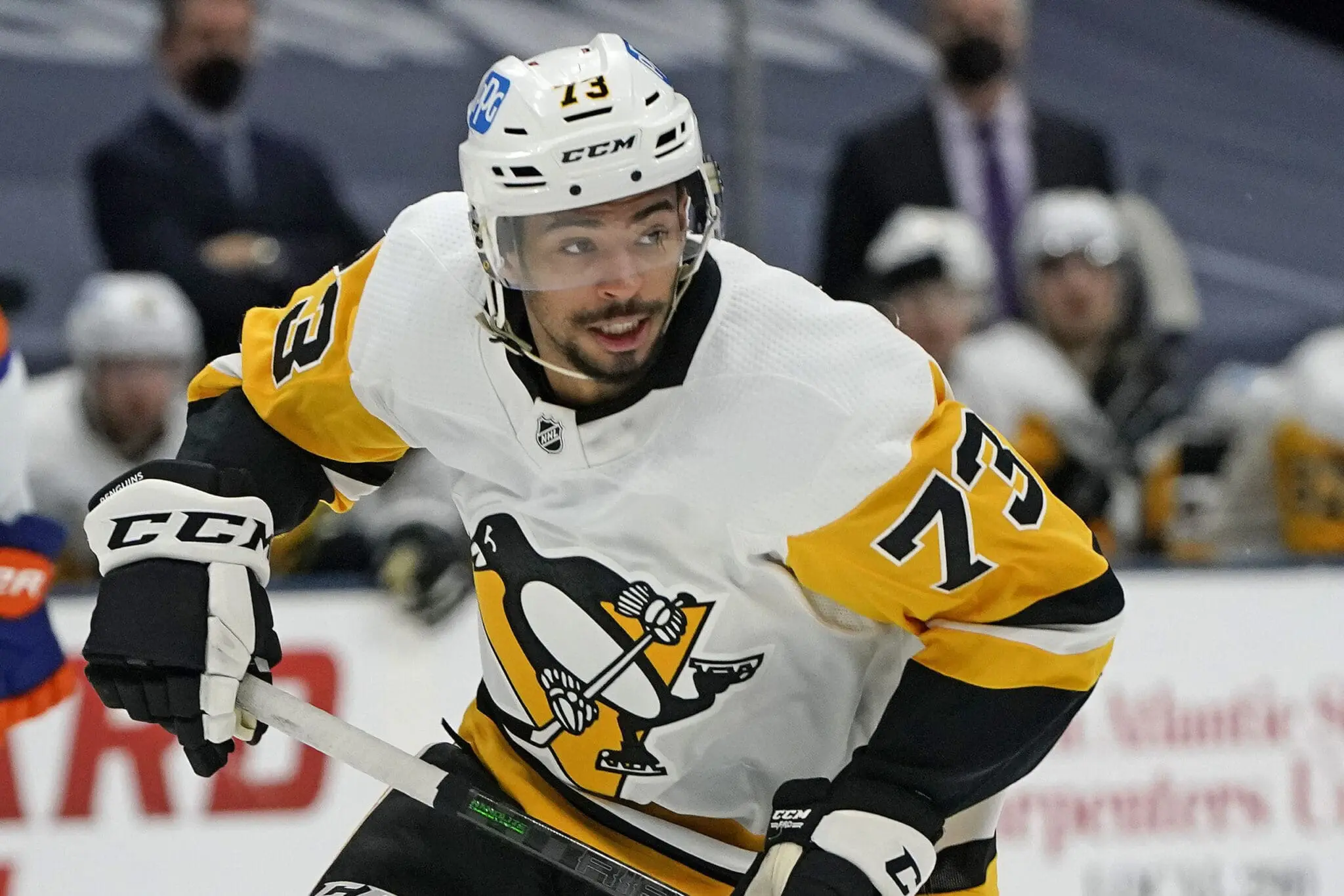Penguins
Here’s Who Should Be Better Next Season … and Why

When a team fails to qualify for the Stanley Cup playoffs, as the Pittsburgh Penguins did this spring, it generally needs to improve a lot before becoming a serious championship contender.
Often, in a lot of ways.
Just how close the Penguins are to attaining that oft-stated objective — or perhaps how far they are from it — can be debated, but they clearly have to get better.
Here are six players capable of elevating their games during the 2023-24 season, and why they will — or won’t — do so:
Mikael Granlund
Why he’ll improve: For starters, because he can’t be any worse than he was after being acquired from Nashville as the trade deadline closed in last season. He was invisible most of the time, ineffective the rest.
It’s not just that Granlund, who was brought in to bolster the Penguins’ third line, never really settled in with his new team; he rarely looked comfortable with the game of ice hockey. So bad — so out of synch, so out of place — that it’s hard to imagine his game will remain anchored at the depth to which it plunged during the stretch drive.
Why he won’t: Sometimes, guys just inexplicably hit a wall, and never recover from it. That shouldn’t happen to one who has demonstrated excellent hockey sense, versatility and playmaking ability throughout most of his career and who is only 31, but Granlund faces a steep climb to reach the level where the Penguins expect — and need — him to be.
Jake Guentzel
Why he’ll improve: It might seem like a lot to expect a 36-goal scorer to elevate his game significantly, but a player entering his prime who possesses Guentzel’s skills set and fearlessness should be good for at least 40 per season, especially with Sidney Crosby feeding him pucks.
As good as his shot and hand-eye coordination are, Guentzel still went through goal-less streaks of eight, six and five (twice) games last season. Even the most accomplished goal-scorers have games when their touch seems to desert them, but Guentzel is good enough that he can purge some of the unproductive stretches from his game.
Why he won’t: The fearlessness that allows Guentzel to operate around opponents’ nets as if he has impunity is part of the reason he scores so much, but it also ignores that, at 5 foot 11, 180 pounds, he is vulnerable to being physically abused for venturing there. If he absorbs too much of a beating — and it happens too often — the punishment might begin to outweigh the value of the production it makes possible.
P.O Joseph
Why he’ll improve: Joseph, at 23, cemented his place as an NHL regular last season, but does not appear to be close to realizing his full potential.
He’s mobile and has pretty fair offensive talents, but should get stronger — and, thus, better defensively — over the next few years. Whether he can mature into a top-pairing defenseman during that time remains to be seen, but any doubts about whether he belongs at this level should have been erased.
Why he won’t: Aside from the obvious benefits that would come from putting on a little more muscle, there’s no good reason why Joseph shouldn’t, as long as he doesn’t stray from the commitment that has gotten him to this point.
Drew O’Connor
Why he’ll improve: O’Connor was on a steadily upward trajectory during the past season, and by the end of it had established himself as a legitimate bottom-six forward. The question now is whether — and how much — he can continue to progress.
His game has all the components needed to do well in a middle-six position someday — he can skate, hit, win puck battles and score the occasional goal — and his play for Team USA in the world championships last month underscored his versatility.
Why he won’t: O’Connor’s strong showing at the world championships should have compounded the confidence he gained as 2022-23 moved along. The biggest hurdle to him continuing to elevate his output would come from losing that belief in his own abilities.
Jeff Petry
Why he’ll improve: Acquiring Petry, who was 34 at the time, from Montreal last summer was one of the moves intended to help give the Pittsburgh Penguins a short-term upgrade that would propel them deep into the playoffs.
Petry was OK, but not much more, on the No. 2 pairing for most of the season, putting up five goals and 26 assists in 61 games. He never came close to being a difference-maker and wasn’t an upgrade over John Marino, who was traded to New Jersey after management concluded that his development had plateaued during the previous two seasons.
Why he won’t: He will be 36 on Dec. 9 and, while players that age still can be major contributors — hey, his teammates include Kris Letang, Evgeni Malkin and Crosby — Petry didn’t show much during 2022-23 to suggest that there’s a major spike in his productivity coming.
Ty Smith
Why he’ll improve: Smith, who had a place on the NHL’s all-rookie team in 2020-21 spent most of the past season in Wilkes-Barre, trying to burnish his defensive work, which was easily the most glaring flaw in his game.
He’s never going to develop into Jaccob Slavin or Victor Hedman, let alone Rod Langway, but Smith’s work in his own end seemed to get better during his time in the American Hockey League. He no longer will be waivers-exempt, so any future upgrades to his defensive game likely will be made against the best forwards in the world.
Why he won’t: Because of his modest size (5 foot 11, 180 pounds), Smith figures to always have an issue neutralizing oversized opponents around his net, especially if he doesn’t master the art of utilizing leverage to combat them.














